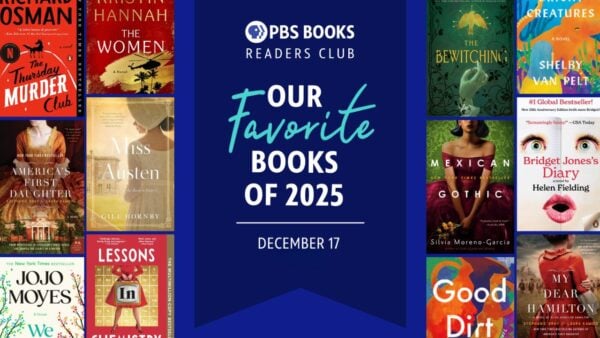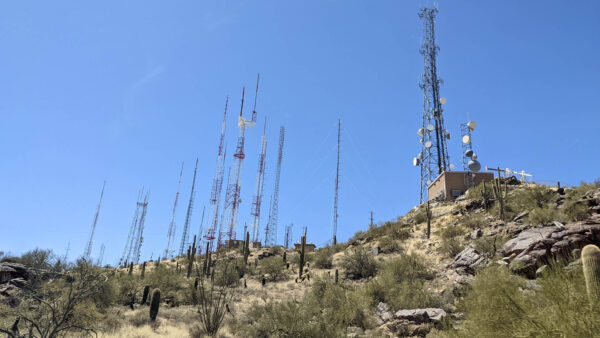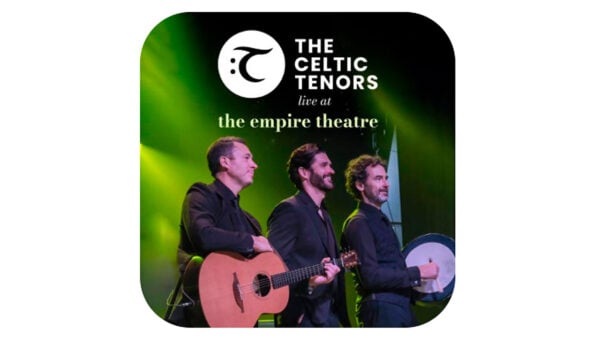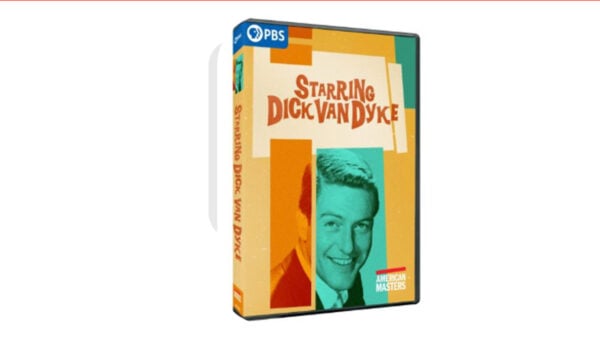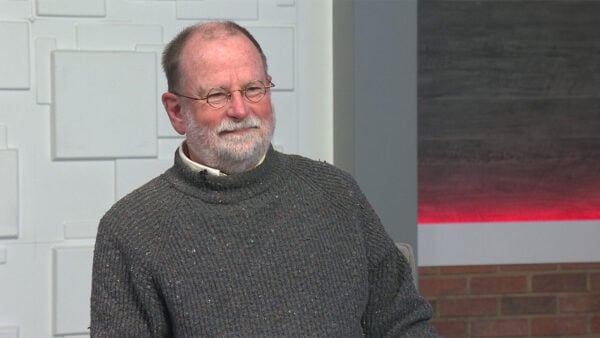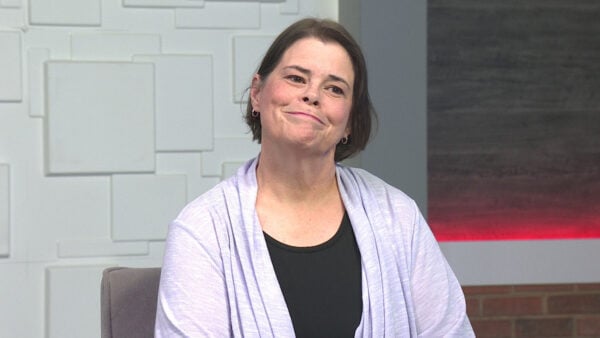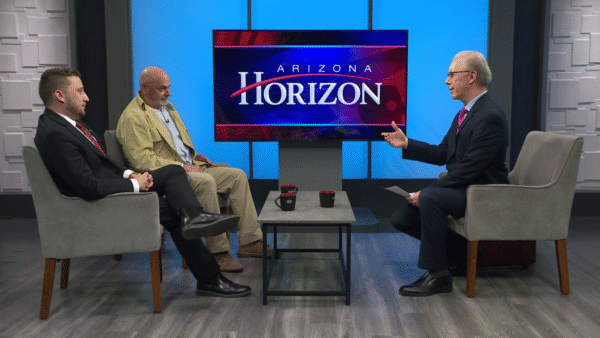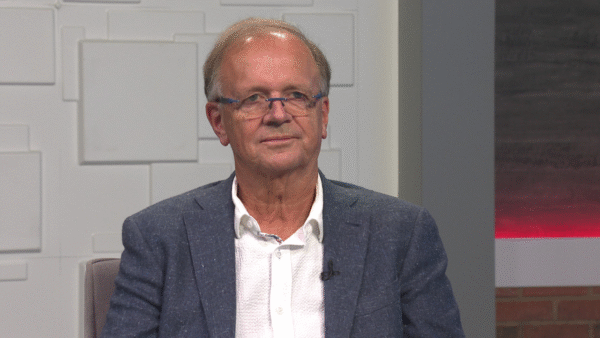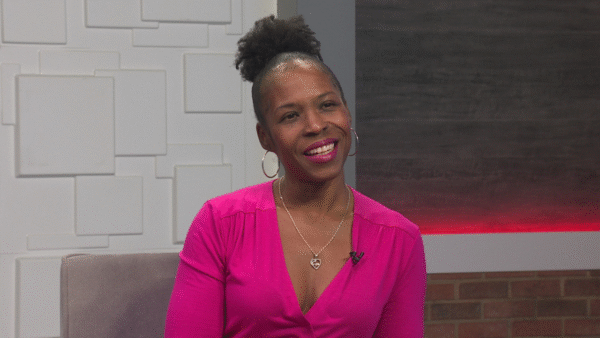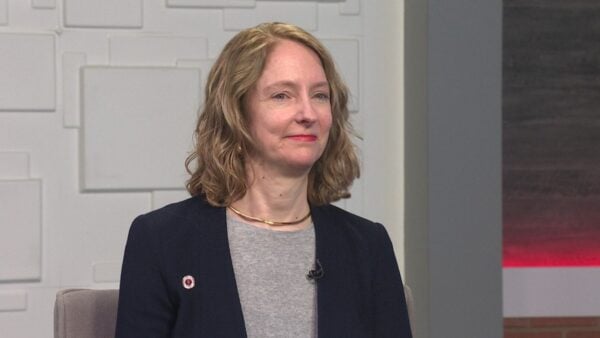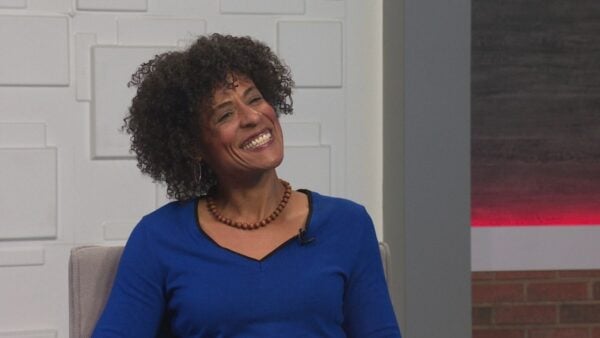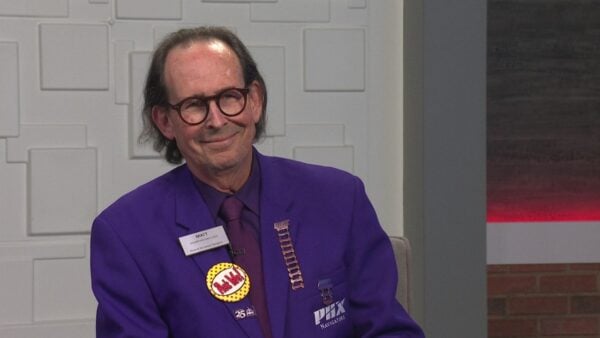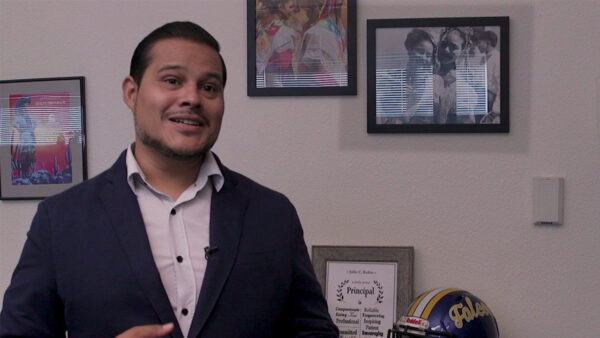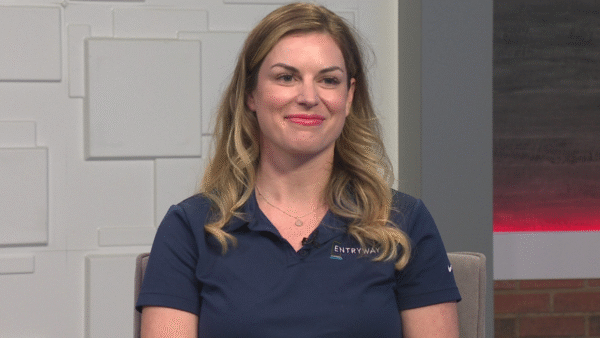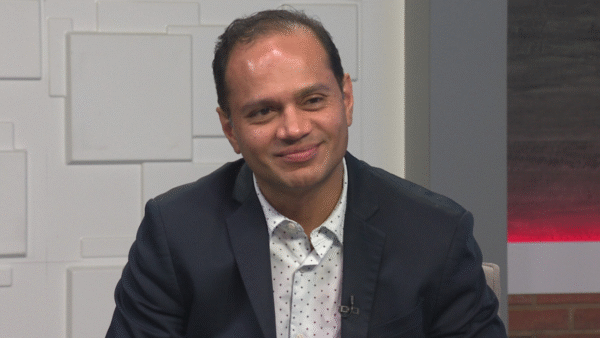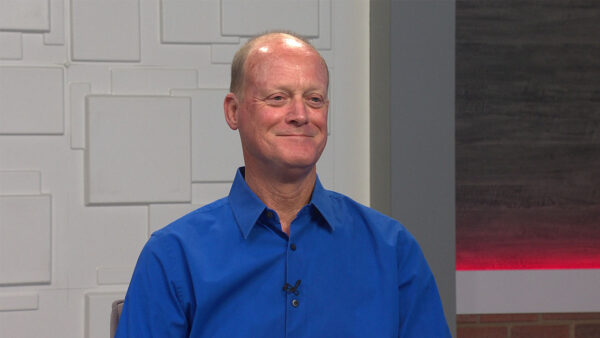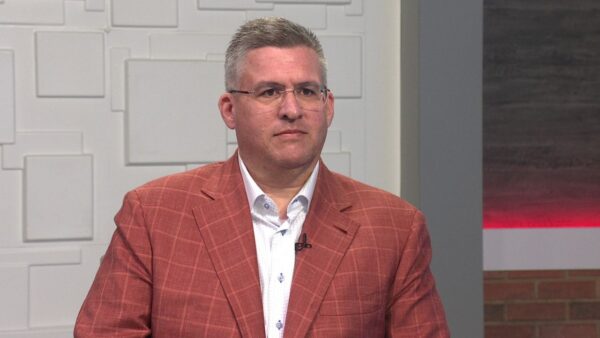For the past 20 years, every major league baseball team has sent its top prospects to Arizona for further player development in the Arizona Fall League. Learn more about the history and purpose of the league from the longtime baseball executive who’s credited as its architect, Roland Hemond. In 2011, Hemond was awarded the Buck O’Neil Lifetime Achievement Award by the National Baseball Hall of Fame and Museum’s Board of Directors.
Ted Simons: For major league baseball it's a chance for teams to win a place in history, but in Arizona October is also about the future of Major League Baseball, it's where all 30 major league teams send their top prospects to compete in the Arizona fall league. This year the fall league is celebrating its' 20th anniversary season. We'll hear from the man they call the architect of the Arizona fall league, but first Producer David Majure and photographer David Cano take us to a ball game to see what the league is all about.
They are baseball's top prospects. Minor league players hungry for the majors.
Steve Cobb: There's no question these guys are on a major league track if they're here.
Arizona fall league allows players to show off their skills and work on their games.
Steve Cobb: Development is the theme development is what we're all about here.
Steve Cobb has directed the fall league during its first two decades.
Steve Cobb: This is our 20th anniversary season. It's a year we're going to look at our relatively brief history in the baseball world and really recognize what has been accomplished over the last 20 seasons.
The track record is impressive. 182 major league all stars, 10 league MVPs, three Cy young award winners all once played in the Arizona fall league.
Steve Cobb: I think about last year when we had Bryce Harper and Mike trout in the same outfield. Obviously one year later we know the impact that both those players have had at the major league level. We have sent over 2100 players to the major leagues in our 20-year history, so there's never been a development league like this.
And development doesn't stop with the players. The fall league produces major league managers, coaches and umpires at an equally impressive rate.
Steve Cobb: This league was created by Roland Hemond. And Roland's vision was to create a domestic option for U.S. born players primarily.
Traditionally players had to travel to other countries to play in developmental winter leagues. The Arizona fall league gave players an option to stay in the states.
Steve Cobb: His vision was just fabulous with this. I think it's exceeded his expectation.
Over the years, Hemond has enjoyed welcoming major league al-stars like Albert Pujols into the Arizona fall league hall of fame.
Go, go.
It's an honor that may one day go to any of these current Arizona fall league players. Their training grounds are six of the valley's cactus league stadiums. Baseball talent scouts are always in the stands and games are open to the public.
Steve Cobb: I just think that the ticket prices that we have are second to none, $7 for an adult, $6 for seniors and youth. You can sit anywhere you want to sit. Parking is free. Regardless of what team you support and grew up following, the good thing is they are represented here. All 30 are here.
Each major league team sends seven players to the Arizona fall league. They play together on one of six fall league teams, each with players from five different major league clubs to. Help fans identify who is who the players wear the major league Jerseys of the teams that sent them.
Steve Cobb: The other really good thing is it's a very intimate setting. You really get to hear what is happening on the field. You really can be a part of the action. And I think for most baseball fans it's a breath of fresh air. It's kind of a throw-back. This is just baseball. Pure baseball being played here. The players are very, very hungry. They are hustling. They want to make it. This is the great setting for baseball fans. If you like baseball you can't beat this.
Ted Simons: And joining me to talk about the Arizona fall league is Roland Hemond, one of baseball's most celebrated executives. His career spans six decades and in 2011 he was awarded the Buck O'Neil lifetime achievement award by the hall of fame's board of directors. Hemond currently special assistant to Diamondbacks president and CEO Derrick Hall. Roland Hemond is credited with being the architect of the Arizona fall league. It's good to see you again. Thanks for joining us.
Roland Hemond: Nice to be on your show, Ted. Thank you.
Ted Simons: The question was the inference was that this is pretty much what you saw when you envisioned T. is this what you saw in you envisioned it?
Roland Hemond: I envisioned it the way it has developed but I think it has developed even beyond my wildest dreams. I felt that young players weren't playing long enough during a season. If you play a minor league season you start April and you're through Labor Day. Six months of the year you're not working at your craft. That was -- I would try to convince players to go to winter ball but then I realized that there were times when we sent players to winter ball they were standing in the way of the development of some of the Latin players, for instance. Now if we having such great facilities here in Arizona and the climate is perfect in the fall, it was an ideal spot for me to suggest strongly that I felt that we needed a league of this type.
Ted Simons: You suggested strongly, but you had to do some work to convince baseball owners, management, the establishment that this is a good idea.
Roland Hemond: Well, ordinarily when you come up with a good idea there are some skeptics who are shooting you down, but I had a champion that helped me. Al Rosen, general manager of the San Francisco Giants, had been a great player with Cleveland. He spoke up and supported me. However, it didn't take off that particular general manager's meeting. The next year Wayne Granger, who had been a pitcher with the St. Louis Cardinals, wanted to address the general managers that he had some people who wanted to fund a league in Florida. Al Rosen said, after Wayne left the office, you guys weren't listening very closely when Roland proposed this last year. Dan O'Brien, Senior, general manager of the Rangers, said if we farm it off to somebody else it be run the way we would want. So, Bill Murray of the commissioner's office presented my idea to the owners at the next owners meeting and they bought into it. The rest is history, and highly successful.
Ted Simons: Indeed. When it first started, the first few years, what kind of challenges did you run into?
Roland Hemond: There were some skeptics along the line, which takes a little time but they found out that players playing in the league found it as a real compliment to them, great boost of morale for the players selected by their organization, that they really felt that they were good major league prospects. Then it became the best scouted league ever, so that all the clubs spend a great deal of time and attention and direct their people to watch these players perform. If you have seven of the best players from each organization you better elevate your game if you want to compete and don't embarrass yourself. That's why they hustle and go all out. We're able to provide the best of instructors and managers. 31 managers have gone started in the fall league and have become major league managers. Dusty Baker, the first year from 1992, that was his only managerial experience. Next year he was manager of the year with the San Francisco giants and he's still going strong.
Ted Simons: Talk about some of the players, as well. Going through the research, Derek Jeter played in the fall league. Obviously, Albert Pujols played in the fall league. I went out to watch Bryce Harper last year, he first time he steps in the batter's box, the first pitch he sees he hits it over the wall. I figure this is a pretty good player, this someone we'll see in the future. But Derek Jeter all the way back to those guys.
Roland Hemond: Yes. He wasn't here very long because he severed a mild injury and the Yankees brought him home, but he did get his start here. When Albert Pujols entered the fall league hall of fame and came in person and addressed the players in the two dugouts, he said he had played class A baseball at Cedar Rapids the year before and the Cardinals had moved them up to their Triple-A club in Memphis to help in the playoffs. So he looked like he was a long way up from the majors except after the fall league he became a great rookie. He said it took -- he took every at bay like it might be his last. And that was a good lesson to the players, that you apply yourself every at bat. That's what's happening in the playoffs. Right?
Ted Simons: Indeed
Roland Hemond: Possess the ability to concentrate until the final hour.
Ted Simons: You talk about a finishing school for future major league baseball players, you can be an Albert Pujols, you could also come in there with a reputation and if you don't cut it in the fall league you have to work extra hard to get back up there. Don't you?
Roland Hemond: That's right. If you did not accept the assignment the way you should you'll live to regret it because now you'll see so many of your teammates or opposing players because we always have 18, 20 players the following opening day that played in the fall league the year before playing in the big leagues. They are so well scouted at least if you're placed in an organization whereby you have some players ahead of you and it's tough to crack it you can perform the way the scouts recommend that you acquire in the trade. Ian Kennedy is a prime example because the Diamondbacks required him in a trade and our scouts felt if we could get him he's going to be a fine pitcher.
Ted Simons: As far as the fans that show up for these games, obviously there's the ticket price is very affordable, but you don't get a huge bunch of folks out there. I personal kind of like that. It's baseball and for baseball fans. But what fans do you see at the games?
Roland Hemond: I have friends from around the country who arrange their vacations to be in Arizona for the fall league. They recognize as real good baseball fans that it's a real treat so that's why I would like to see more people from Arizona attending the games because they are bypassing an opportunity to predict and learn themselves who they think will be in the major leagues next year or who might be the rookie of the year. Mike Stroud appears to be a cinch in the American league for this winter when they make the announcement. But if you didn't see him in the fall league you would pass up an opportunity to see a coming star.
Ted Simons: Not only that but if you're a Diamondbacks fan, a Giants fan, Indians fan, or whatever kind of fan you are you can always go to a game that has your players, young players on that particular team and you can watch the people that you're reading about or you're keeping an eye on for future years.
Roland Hemond: Right. You learn from it by being a fan what a scout goes through and he has to project what's going to take place. It's fun as a fan to play the role of a scout.
Ted Simons: What is the health of the fall league? Last time we talked you said it wasn't necessarily designed to be a money-maker. Are the costs worth it so far as far as the teams are concerned?
Roland Hemond: There's no question about it because players that come to the major leagues at minimum salary and they are winning jobs that's helping the clubs that cannot sometimes compete for the high priced free agent and still build a very competitive club.
Ted Simons: So again if there's not a lot of folks there and ticket sales aren't what you would like to see, it still is considered a healthy league.
Roland Hemond: Well, because of the fact that the clubs know that they are investing their money for the development side. However, we're starting to gain on fans and MLB network does three games now. Nationally it's become a realty to the fans that, let's not pass this up. Let's go.
Ted Simons: Before we let you go, your experience in baseball is so extensive. You've been around the game so much, I wonder sometime, when you go to a baseball game, any game fall league or otherwise, what do you look for? I know what I look for. Other baseball fans watch the ball -- what does Roland Hemond look for in a baseball game?
Roland Hemond: I get there for the first pitch because I don't want to miss anything. Adam Eaton, our young centerfielder, you immediately fall in love with him the way he aggressively runs down the first-base line. He's thinking extra base every time. If he hits a single he's thinking double. If he hits a double he's thinking triple. He plays with that strong desire. If you're there early and he's leading off the game you're getting sheer enjoyment of watching a young player who knows how to go about it.
Ted Simons: Do you watch that kind of thing like individual players, how they go about the game, how they run the base, play defense, how they hit the ball, or do you watch -- provided no one is chewing your year off what do you concentrated for?
Roland Hemond: You watch the middle infield, how much range they have. And any outfielders, what kind of an arm does he have. That's what the good uniformed baseball people do. They are playing against the opposition, they are studying them very well but the opposition is studying your club as well. It's a thinking game. You never know what you're going to see no matter how many games you go to, something comes up that you haven't seen before.
Ted Simons: Last question. When you go to fall league games and look around and you think, 20 years have passed, I asked you this earlier in a different way. Do you just sit back and go this worked.
Roland Hemond: It's very gratifying. It makes you feel good. You know that it has helped so many players, managers, coaches, young people who work the grandstand, work under Steve Cobb and Joe McGrath, learning what it takes behind the scenes. Many of them graduate as interns to major league teams. Even to front office jobs general managers, Tim Pupura became a general manager after being an intern in the early days of the fall league. The White Sox were playing the Astros and he was the opposing general manager. Ken Williams with the White Sox in '95.
Ted Simons: You started something there. So far people are enjoying it. It certainly is a success. Thanks for joining us.
Roland Hemond: Thanks for having me.



